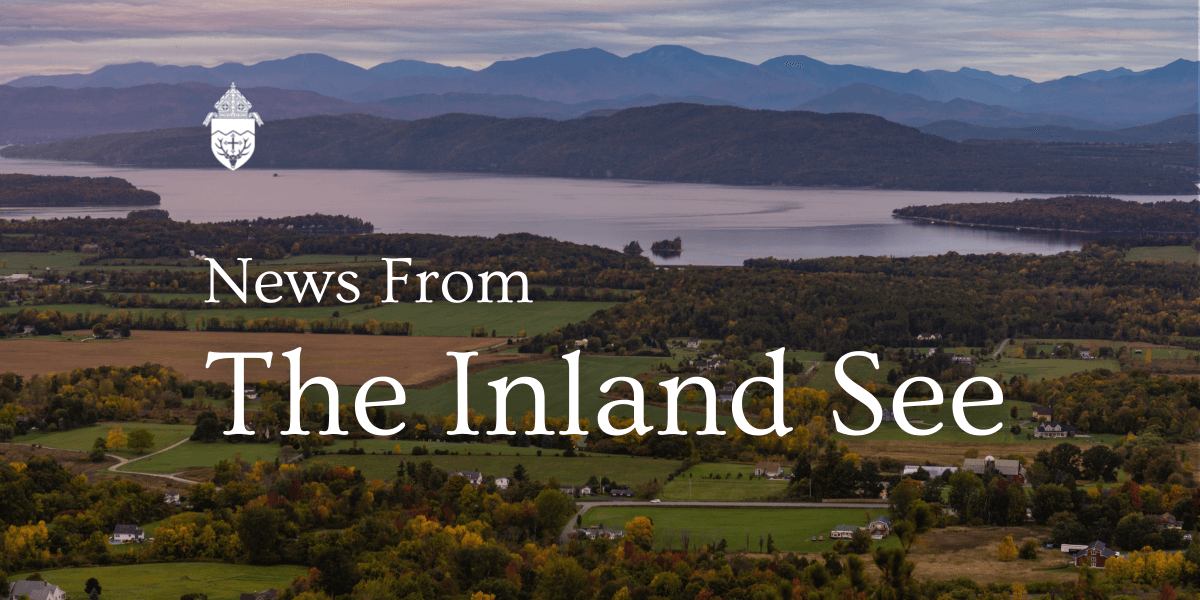
2022: ‘The Year of Communion: Unity in Creed, Worship and Life’
The Diocese of Burlington will dedicate 2022 as “The Year of Communion: Unity in Creed, Worship and Life” to coincide with the theme Pope Francis has chosen for the next synod of bishops.
That theme is “For a Synodal Church: Communion, Participation and Mission.”
The pope will formally open the synod process at the Vatican Oct. 9-10 this year; the bishop of every Diocese will open the process in his Diocese Oct. 17.
The three-year synodal journey will have three phases — diocesan, continental and universal —of consultations and discernment, culminating with the assembly in October 2023 in Rome.
The diocesan phase will go through April 2022, featuring a consultation with local Catholics discussing a preparatory document and questionnaire that the synod office will send with guidelines for how the consultation should work.
The theme for 2022 in the Diocese of Burlington, “The Year of Communion: Unity in Creed, Worship and Life” was chosen not only as part of the preparation for the synod of bishops but as an effort to bring people back to parishes, back to communion, said Burlington Bishop Christopher Coyne.
Diocesan pastoral and senior clergy staffs are preparing for the special year, which he wants to incorporate a focus on unity in creed, worship and life.
He said another round of questions for Vermont Catholics is needed even though they answered questions for the recent Diocesan Synod because the questions will be different for the synod of bishops, which will be more specific about the process of the synod rather than the content.
In revisions to the synod process announced in May, Pope Francis asked that it begin with consultations with laypeople. “Without this consultation, there would be no synodal process, because the discernment of pastors, which constitutes the second phase, emerges from listening to the people of God,” Cardinal Mario Grech, secretary of the synod, explained.
“The Second Vatican Council teaches that the people of God participate in the prophetic office of Christ,” he said. “Therefore, we must listen to the people of God, and this means going out to the local churches.”
“The governing principle of this consultation of the people of God is contained in the ancient principle ‘that which touches upon all must be approved by all’ — ‘Quod omnes tangit ab omnibus approbari debet,'” the cardinal said. “This is not about democracy or populism or anything like that. Rather, it is the Church that as the people of God, a people who by virtue of baptism, is an active subject in the life and mission of the Church.”
Bishop Coyne said this is an effort under the power of the Holy Spirit for members of the Church to consult and discuss the best way to move forward focusing on unity in creed, worship and life, “moving toward salvation and our love for God — Father, Son and Holy Spirit.”
Listening to every Catholic is “the true ‘pastoral conversion’ of the Church,” Cardinal Grech said. “God willing, one of the fruits of the synod is that we might all understand that a decision-making process in the Church always begins with listening, because only in this way can we understand how and where the Spirit wants to lead the Church.”
Bishop Coyne began a series of “town meetings” a few years ago that had to be curtailed because of the Covid-19 pandemic. But he hopes to resume them so he can visit different parishes and listen to parishioners’ concerns.
Details for “The Year of Communion: Unity in Creed, Worship and Life” must be worked out, but the bishop said its main focus will be on “our unity in love for God the Father, Son and Holy Spirit, unity and love for each other as brothers and sisters and for all of our brothers and sisters in the world and unity around the faith of the Church, the worship of the Church and the life of the Church.”
—Cori Fugere Urban and Catholic News Service
—Originally published in the Sept. 18-24, 2021, edition of The Inland See.

